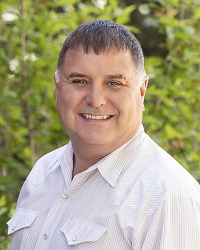Royce Hutson is Associate Professor in the School of Social Work at Boise State University. Professor Hutson’s research focuses on measuring the health and mental health impacts of natural disaster and armed conflict using advanced population-based survey methodologies. In his work, he assisted in developing some of the initial technology that utilized satellite/aerial geocoded photographs to sample households in difficult environments. Additional work led to improvements in sample weights to more accurately represent the population using these sampling methods. Professor Hutson has conducted multiple surveys in South Lebanon, the Syrian-Lebanon border, the Palestinian refugee camps in Lebanon, and in greater Port-au-Prince, Haiti. Additionally, his work has also looked at how social exclusion and experiences with violence are related to violent extremism during times of prolonged crisis. This research has been funded by a variety of governmental, non-governmental, and multilateral organizations. Professor Hutson was a Visiting Professor of Social Work at Lebanese American University in Beirut, Lebanon in 2007-08 and was a Visiting Scholar at the Institute for Social Justice and Conflict Resolution at Lebanese American University in 2016. He has a BS in psychology from Loyola University Chicago, a MSW from the University of Georgia, and a PhD in social welfare from the University of Wisconsin-Madison where he was a graduate research fellow at the Institute for Research on Poverty.
State Department Profile
Bureau of Counterterrorism
Office of Countering Violent Extremism
Royce Hutson is a program analyst in the Office of Countering Violent Extremism at the Bureau of Counterterrorism in the U.S. Department of State (CT/CVE). In this capacity, Dr. Hutson works on coordinating technical assistance on best practices in repatriation, rehabilitation, and reintegration of spouses and children of foreign ISIS fighters returning to their countries of origin. These initiatives require interacting with a variety of governmental, multilateral, and non-governmental organizations and academics.
|




